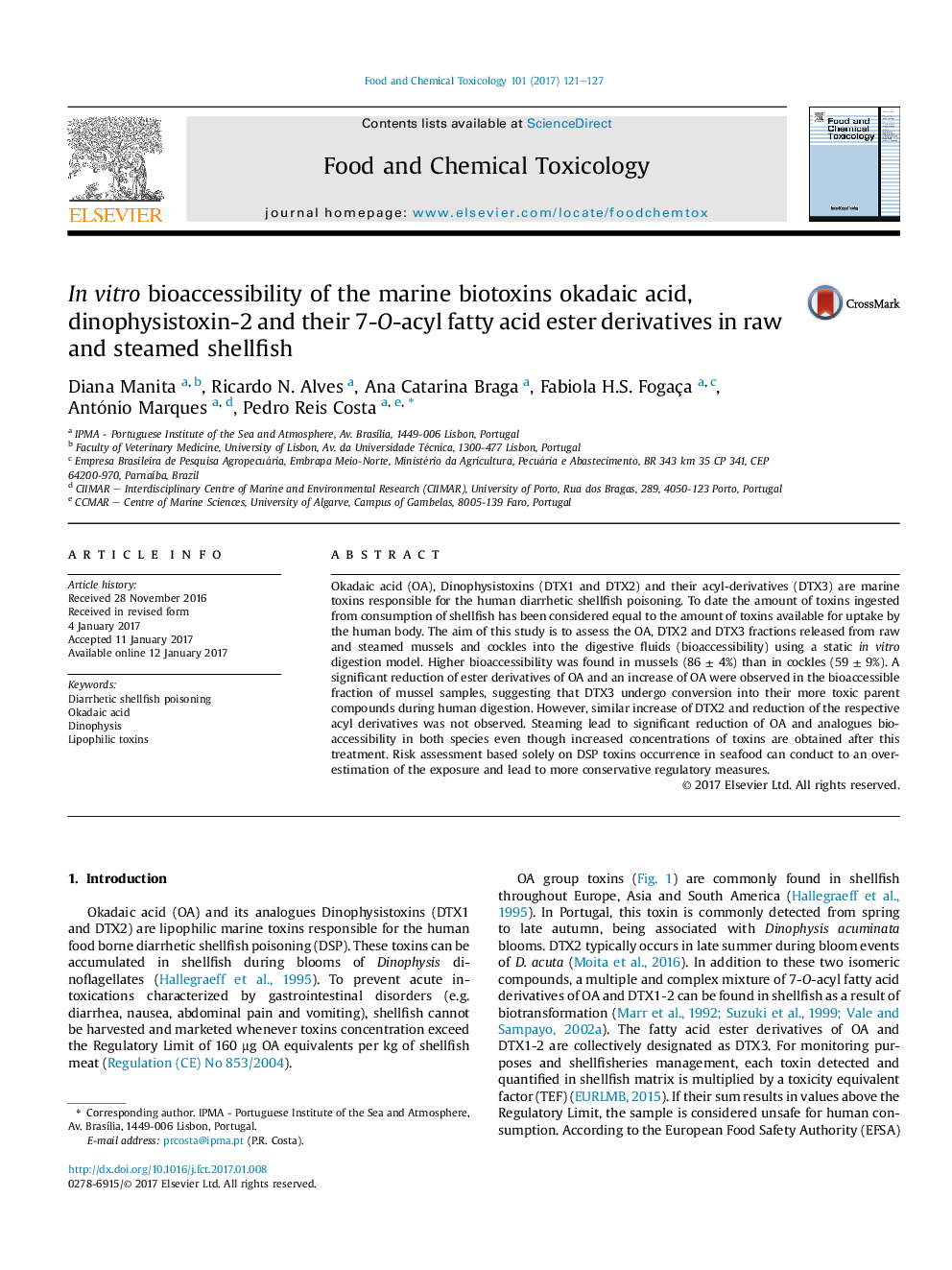| Article ID | Journal | Published Year | Pages | File Type |
|---|---|---|---|---|
| 5560391 | Food and Chemical Toxicology | 2017 | 7 Pages |
â¢Lower bioaccessibility of okadaic acid-group toxins in cockles than in mussels.â¢Lower bioaccessibility of toxins after steaming.â¢7-O-acyl fatty acid ester derivatives of OA found in mussels are converted into OA during the in vitro digestion.â¢7-O-acyl fatty acid ester derivatives found in cockles are not converted into parental compounds.
Okadaic acid (OA), Dinophysistoxins (DTX1 and DTX2) and their acyl-derivatives (DTX3) are marine toxins responsible for the human diarrhetic shellfish poisoning. To date the amount of toxins ingested from consumption of shellfish has been considered equal to the amount of toxins available for uptake by the human body. The aim of this study is to assess the OA, DTX2 and DTX3 fractions released from raw and steamed mussels and cockles into the digestive fluids (bioaccessibility) using a static in vitro digestion model. Higher bioaccessibility was found in mussels (86 ± 4%) than in cockles (59 ± 9%). A significant reduction of ester derivatives of OA and an increase of OA were observed in the bioaccessible fraction of mussel samples, suggesting that DTX3 undergo conversion into their more toxic parent compounds during human digestion. However, similar increase of DTX2 and reduction of the respective acyl derivatives was not observed. Steaming lead to significant reduction of OA and analogues bioaccessibility in both species even though increased concentrations of toxins are obtained after this treatment. Risk assessment based solely on DSP toxins occurrence in seafood can conduct to an overestimation of the exposure and lead to more conservative regulatory measures.
